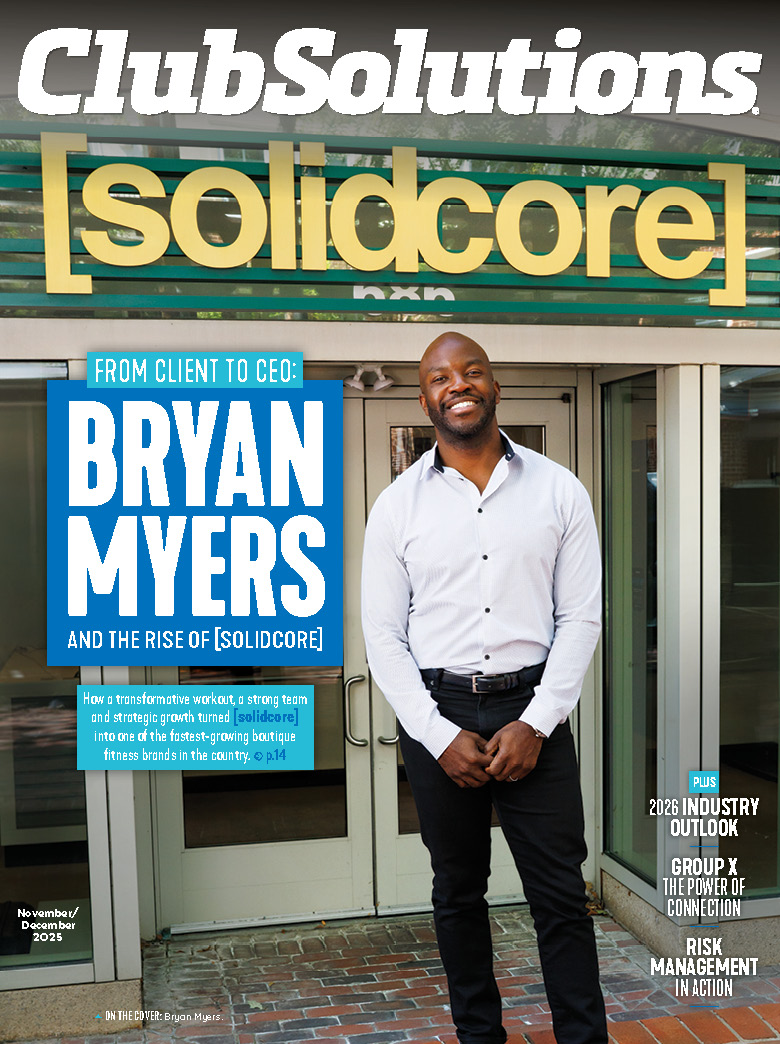This month we sat down with Rebecca Downey, the dietitian at East Bank Club, to discuss how to run a successful nutrition program.
What does it take to run a successful nutrition program?
There are several components that go into running an effective nutrition program. It’s important to understand the needs of members to offer relevant nutrition services that will be applicable to a variety of nutritional needs. In our nutrition department we offer a tailored, individualized approach specific to each member rather than encouraging a “one-size fits all” method to accomplish successful lifestyle changes.
As the registered dietitian, I work side-by-side with personal trainers to collaborate on a member’s plan, which will ultimately help them reach their goals. Members also have access to fitness testing including the Resting Metabolic Rate test, Bod Pod test and VO2 Max test which provide additional assistance in achieving goals.
What challenges come with running a nutrition program?
There can be challenges within a nutrition program. First, when providing nutrition counseling it can be difficult to assist members with altering eating habits and changing certain lifestyle behaviors they have been accustomed to their entire life. Helping members to adopt new changes and let go of unhealthy habits is not always an easy task. Another challenge is member demand for nutrition services varies from week to week and may be inconsistent. While regular follow-up visits are strongly encouraged, members may have difficulty maintaining frequent visits. As an effort to combat this, there is a 24-hour cancellation policy in place and appointment reminders are frequently sent out.
How do you hold members who participate accountable during the program?
It’s common for members to request accountability when starting lifestyle changes. Part of my role when working with members is to help them slowly get acclimated to small, realistic changes that will be sustainable to follow long term. It’s helping them to understand establishing healthy habits does not need to feel like a chore. We also educate members on utilizing nutrition tools on their own — such as keeping a food journal — to help offer a detailed understanding of eating patterns. In addition, we also offer weight loss group classes, which include both nutrition sessions and regular exercise group classes. In a group class setting, members can interact with other members who have similar goals, providing additional support and accountability.
Rebecca Downey’s Three Tips for a Successful Nutrition Program:
1. Offer a variety of relevant nutrition services that will cater to different individual needs. This will help to promote growth and attract a diverse population of members.
2. Enhance the member experience by keeping them up to date on applicable nutrition topics and offering special events, such as hosting food demonstrations and tastings, highlighting trending nutrition topics on social media, and providing educational talks.
3. Offer an individualized approach when working with members. To provide beneficial recommendations, it’s imperative to take the time to understand each member’s needs and preferences to create a personalized nutrition plan specific to their needs. This also includes staying in frequent communication with members to build rapport and help them achieve their nutrition and health goals.
Stay ahead in the fitness industry with exclusive updates!
Taylor Gabhart is the editor of Club Solutions Magazine. She can be reached at taylor@peakemedia.com.




![From Client to CEO: Bryan Myers and the Rise of [solidcore]](https://d296qbqev3kq48.cloudfront.net/wp-content/uploads/2025/11/06151333/CS-NovDec25-CoverStory-3-350x250.jpg)






